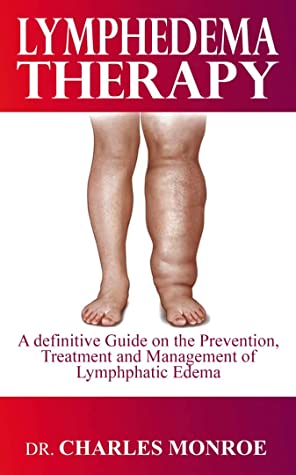
If you have been diagnosed with lymphedema, it may seem like your doctor has given you the cure for all diseases – just wait and have more fluid pumped into your body! But don't believe this story!
Lymphedema simply is the swelling caused by the accumulation of lymph fluid inside the body as a protective mechanism
Lymph glands act just like a sponge in your body by collecting fluid. The liquid then moves into your tissue, where it protects the delicate tissues. When the liquid does not drain, it usually accumulates in the limbs or ankles, but can also occur in other areas of your body including the lungs and chest. Lymph fluids are a major part of your lymphatic system, which carries fluids and other cells that help carry infections throughout your body.
However, lymphedema is not a chronic condition and is not incurable. As long as your lymph glands are producing enough fluid, you will never have symptoms of lymphedema. Most people with lymphedema do not experience any symptoms at all. In rare cases, there may be pain, stiffness, or a feeling of warmth at the site of fluid drainage. In most cases, these symptoms go away without treatment.
Lymphedema may require medical attention in certain situations. These include: rapid weight gain or loss, infections in the area, or if a tumor grows larger and deforms the affected area. In addition, in some cases, an operation to remove fluid may be performed. However, these treatments are not recommended if you are pregnant, have diabetes, have heart or kidney problems, or are undergoing chemotherapy.
There are a number of natural therapies that help relieve the symptoms of lymphedema. One of them is the use of compression stockings, which help improve blood circulation. Besides improving circulation, these socks can also help reduce swelling. You can also use compression socks to relieve pain and pressure in areas of the body where lymphedema occurs.
You can also use your diet to ease the symptoms. By avoiding saturated fats and other sources of cholesterol, you can control the risk of developing lymphedema. In addition, you should also limit the intake of red meat and seafood that contains too much fat content. If you do eat meat, be sure to limit the consumption of high levels of fatty meats such as organ meats and organ meat products.
Finally, you should avoid alcohol if you are a person who tends to perspire very often. Alcohol has the potential to increase your blood pressure and thus may aggravate your condition. Instead, try to drink plenty of water to drink more fluid into your body as well. Some doctors may recommend taking vitamin supplements which contain lycopene that can help alleviate symptoms of lymphedema.
Lymphedema isn't a death sentence, but it can be frustrating to deal with
Don't let it control your life and don't let it keep you from enjoying your life and your health. Lymphedema may be a temporary situation that will go away on its own, so don't give up hope.
If your lymphedema becomes severe, seek medical attention immediately. While there are natural treatments available to help manage the symptoms of lymphedema, surgery and chemotherapy can be used to treat severe cases. In this case, you should always consult with your doctor so that you can discuss all your options and make an informed decision.
Some of the most common symptoms of lymphedema include extreme pain, tenderness, and swelling in the affected area. This pain usually worsens with increased weight and can be very uncomfortable. Swelling in the legs and around the legs can also occur.
A lymphedema treatment can vary depending on what type of lymphedema you have. Treatment can include reducing the swelling and relieving pain, as well as reducing inflammation. However, it may take months or even years for the body to respond properly to an effective treatment. If you do not respond to traditional treatments, surgery is an option that can be considered.
The best treatment options will depend on your personal situation. For example, if you have diabetes, kidney disease, or are undergoing chemotherapy, you should consider using medications such as steroids.